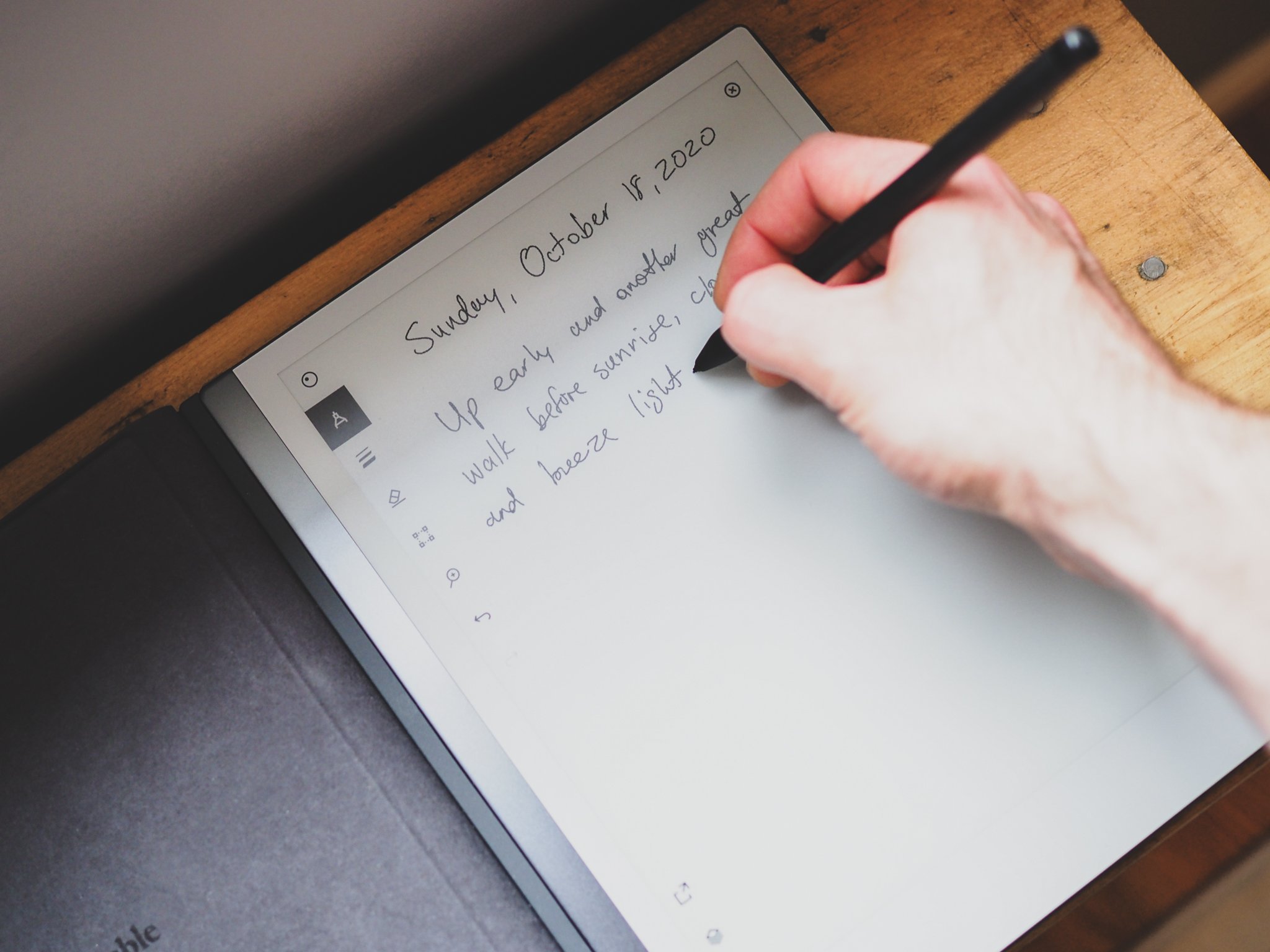Android Central Verdict
Bottom line: The Remarkable 2 is a niche, focused writing tablet that won't appeal to everyone, but once you use it, you understand that what it does, it does really well.
Pros
- +
Beautiful hardware
- +
Satisfying and fulfilling handwriting experience
- +
Plenty of battery life
- +
A decent document annotation tool
- +
Cloud syncing
Cons
- -
Expensive
- -
Mobile and desktop apps are clunky and unidirectional
- -
No backlight
Why you can trust Android Central
For someone who gets a lot of stuff done, I've never gone about it in an organized way. Loose sheets of scrap paper are strewn all over my office, notes to myself forming a Memento-style puzzle that never actually gets solved. I've tried every possible productivity app, even paid for annual fees so, like a gym membership, I'd be more likely to use it. I've watched YouTube videos to glean details on other people's workflows; I'll even admit to spending money on a few online courses.
All of these endeavors began with one goal: figure out a way to organize my day to optimize productivity, and do so in an organized way. My job entails running a website with many moving parts, and if I forget to do something, there are consequences.
When I was offered to review the Remarkable 2, I balked at the idea: not only did I no longer physically write much anymore, but I couldn't imagine finding a use for an e-ink tablet that was purpose-built for that exact thing.
After using the Remarkable 2 tablet for a couple of months, I've concluded that despite its high asking price and limited feature set, it's been so transformative for me and my workflow that I'd recommend it for anyone in a similarly disorganized position to me.
Price & Availability
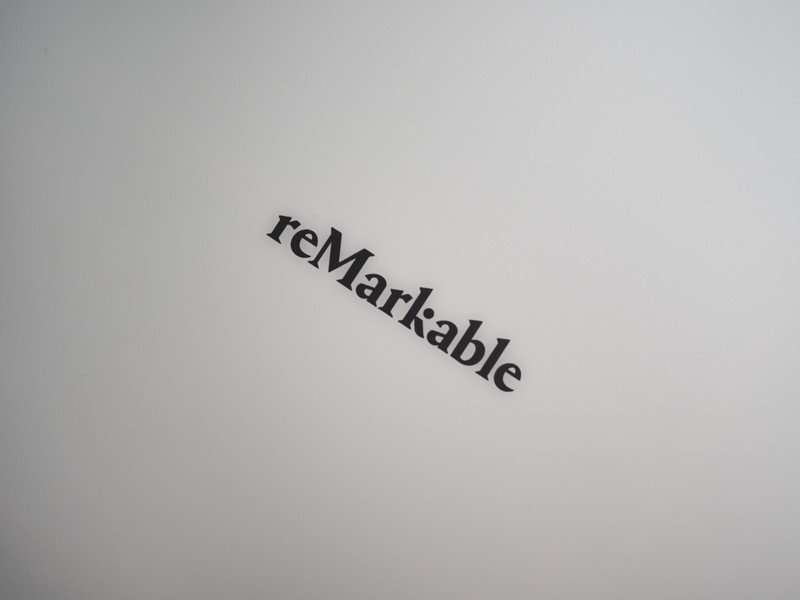
The Remarkable 2 tablet costs $399, and it's currently only sold directly from the company's website. Remarkable says that there is such high demand for this product that it's on backorder, and if you put an order through now, you'll only get it in January. Given our new work from home lives, that doesn't surprise me.
The tablet doesn't come with any accessories — to write on it, you need to buy the $49 Marker or $99 Marker Plus, which is identical to the former but adds a digital (and convenient) eraser on the back. There are also a couple of folio options to hold and store the tablet when not in use, ranging from $69 for a simple fabric pocket to $149 for the leather book folio.
Remarkable 2 What I like
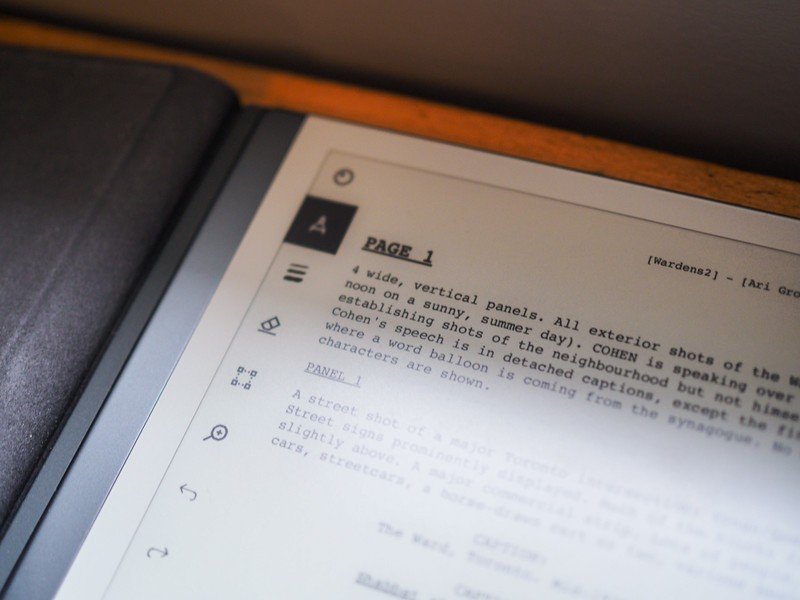
| Category | Remarkable 2 |
|---|---|
| Display | 10.3-inch monochrome e-paper display1872 x 1404 pixels |
| Stylus | High-friction tipTilt detection4096 levels of pressure |
| Connectivity | Wi-Fi, USB-C port, magnetic accessory dock |
| Processor | 1.2Ghz octa-core processor |
| Memory | 1GB RAM |
| Storage | 8GB storage |
| Operating System | Codex |
| Battery | 3,000mAh battery |
| Dimensions | 187 x 246 x 4.7 mm |
| Weight | 403.5 grams |
Even though stylus input is laggier than an iPad or Galaxy Tab, the feeling of writing on this device is much closer to using a pen and paper.
At its core, the Remarkable tablet is a hybrid between an e-reader and a writing canvas like a Wacom tablet. It embeds a stylus-sensitive layer above the e-ink display so that when it interacts with the so-called Marker, the proprietary $50 stylus that you should definitely buy if you want to take full advantage of this thing, it captures those pen or brush strokes in real-time.
It's that touch layer that makes the Remarkable 2 so useful; it becomes a very potent canvas for whatever you would otherwise use a pen and pad of paper or a regular tablet and a stylus. At 21ms, the input lag is more than double some of the more powerful hardware on the market, but Remarkable has tuned the tablet to feel more like physically writing than any other tablet I've used, even the latest Galaxy Tab S7+ with its reduced-latency S Pen input, or the iPad Pro with its Pencil.
On those devices, while input lag is minimal, you are still very much writing on a piece of glass. You can feel the slight scratchiness of the pen tip against the screen, with that tiny bit of feedback that comes from a piece of carbon modulating against a piece of paper.
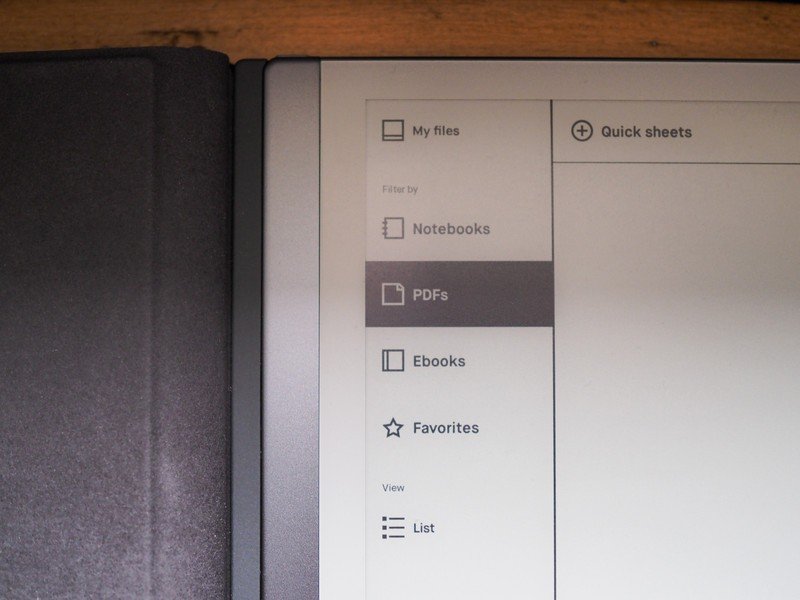
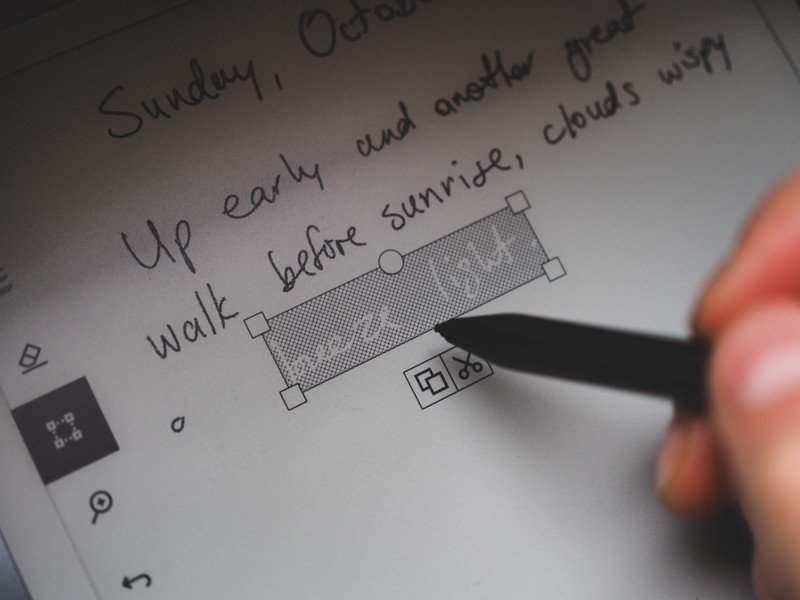
The Codex-based operating system is very simple, with a number of templates available to organize your thoughts, from simple lined paper to graph to a checklist to niche ones optimized for sketching, geometry, calligraphy, and more. I stuck to the first three but appreciated the added depth if I ever wanted to venture there.
You're not limited to writing; you can draw, paint or annotate with the pressure- and tilt-sensitive stylus.
Similarly, there are eight brush types to choose from, from mechanical pencil (my choice and the default) to ballpoint pen to paintbrush to calligraphy pen. Of course, this being a monochromatic touch display with only three active options — black, white, and gray — the painting options are few, but like its ability to focus a writer's attention, sketching on the Remarkable 2 is satisfying in its austerity. That the display and stylus support pressure makes it even more capable for artists-in-training.
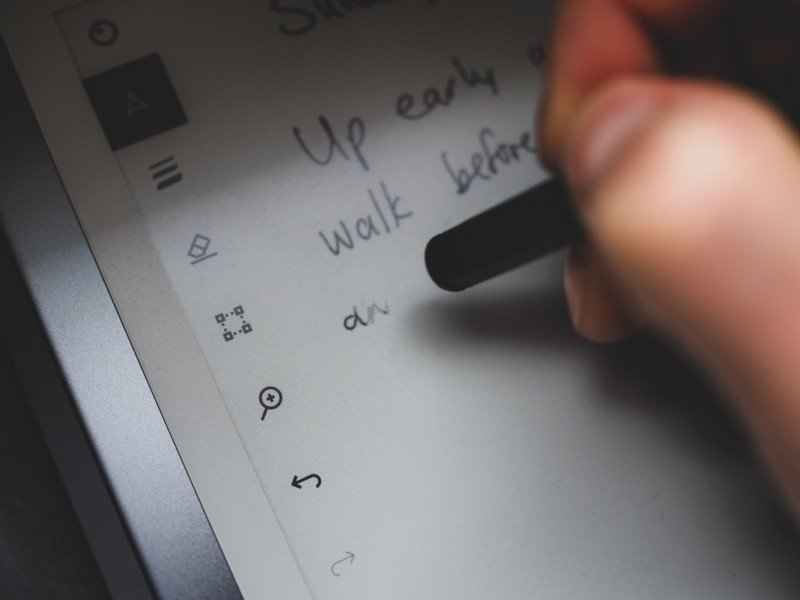
Like any good digital notebook, the Remarkable 2 lets you highlight text, cut out bits, and move it to other documents or notebooks, or erase sections completely. The $99 Marker Pro, which I recommend buying over the $49 Marker, has a digital eraser on the back that never got less pleasurable to use even after spending hundreds of hours writing and erasing notes. Both Markers attach magnetically to the side of the unit, which is delightful.
Remarkable 2 feels like a premium product worthy of its price, but the $399 starting point still stings a little.
While I never used the original Remarkable, I understand from reviews and second-hand accounts that the tablet felt more hardware startup than hardware triumph — which is understandable given the company's size at the time. But it's all the more commendable, then, that the sequel feels so well designed and complete. The chassis, which is just 4.7mm thin, is made of anodized aluminum and is a joy to lug around, especially in leather folio (though at $150 it makes the already-expensive Remarkable 2 even more boutique). It charges quickly via USB-C but even using it for hours a day it still lasted me two weeks on average before I needed to recharge it.
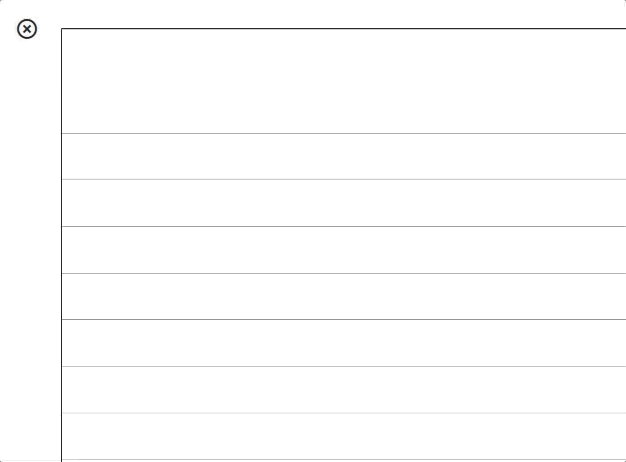
The Remarkable 2 also makes for a good e-reader. While its 10.3-inch display is too big to lie in bed with, I enjoyed wiling away a few hours sitting in my office chair reading a few books I'd saved as EPUBs.
If your chicken scratch needs to be shared with others, it's pretty easy to do that, too: you can enable LiveView, which mirrors what you're writing to the company's Mac or Windows apps; you can share full documents as PDFs, or upload them to Remarkable's cloud backend and access them through the web; or you can convert your documents to plain text using the company's OCR tool, which works relatively well.
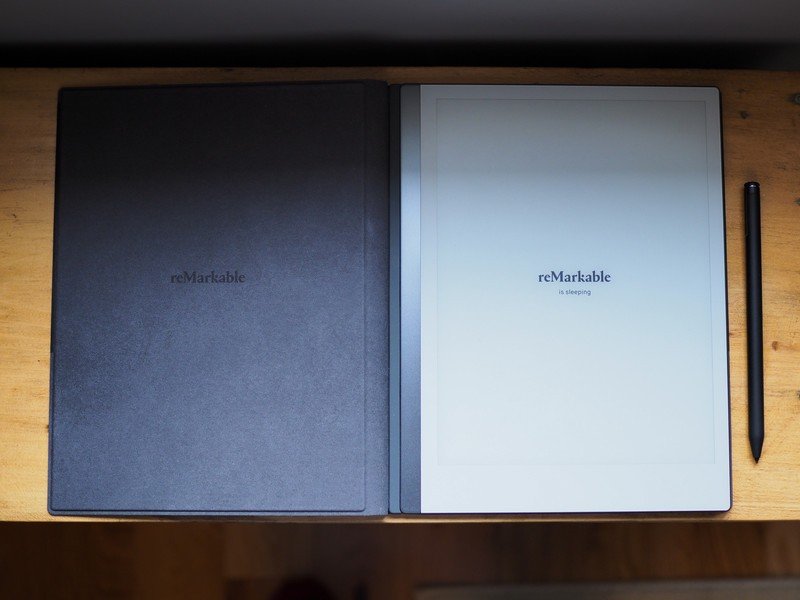
Navigating the tablet is pretty easy; it's got a rudimentary but straightforward folder system whose menu is permanently affixed to the top of the hierarchy. You can nest documents, which the OS refers to as Notebooks, inside folders, and move between them using easily-accessible menus. There's also a permanent Quick Sheets feature that acts as a scrapbook of sorts; you can find it at the top of every folder, and new pages are just added behind the last, which can then be moved out to separate Notebooks afterwards. If you've used Microsoft OneNote, this schema should feel very familiar to you.
You can also import PDFs and annotate them directly on the Remarkable 2, which can be useful if your work involves a lot of reviewing and editing, since reading on here is basically the same as doing so on an e-reader.
Remarkable 2 What I don't like
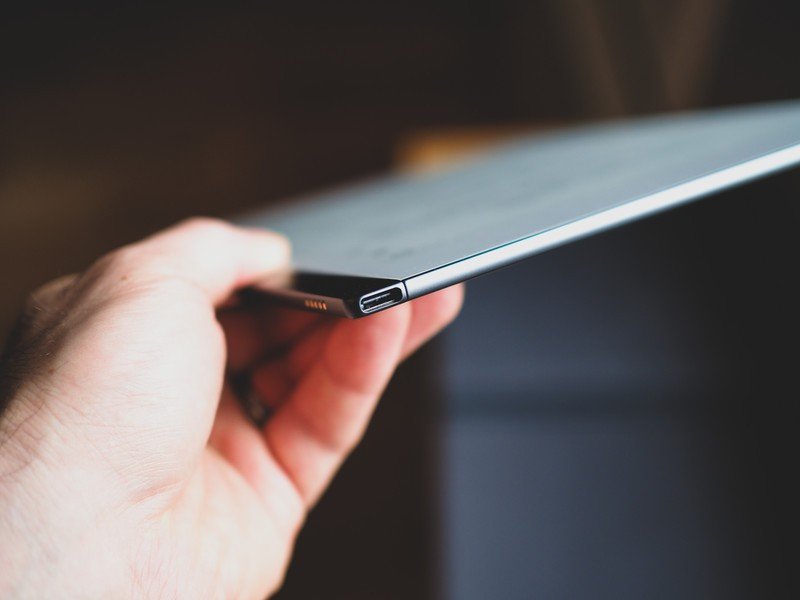
The main knock against the Remarkable 2 is its remarkable asking price. At $399, plus the addition of a Marker stylus, you're looking at a hair below $450 just to get started scratching away on what is objectively a very limited piece of technology. Now, some of the best tools are ones focused on a particular solution, and the Remarkable 2 certainly fits that description, but $450 forces you to be extremely deliberate with your acquisition.
Would I have spent $450 of my own money on this if I hadn't known much about it beforehand? Maybe not. But now that I've spent a couple of months writing on it every day, and choosing it over the more capable iPad or Galaxy Tab nearby, I'd have a much easier time justifying the expense.
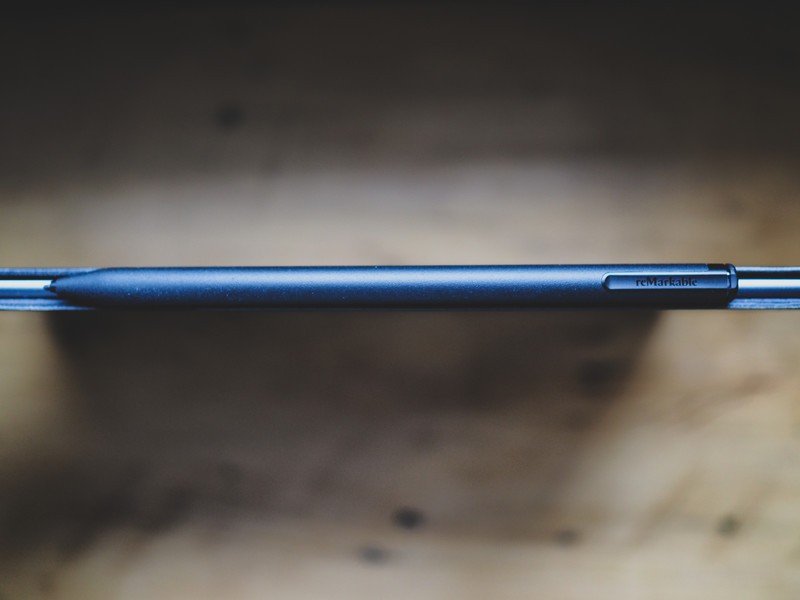
And yet Remarkable the company is clearly finding success with the second version of its tablet. If you visit its website, which is the only place to buy the Remarkable 2, orders are already pushing into January 2021, and there appears to be ample demand.
Once you've gotten over the initial investment cost, you're going to need to contend with the tablet's performance. If you've ever used an e-paper display, you know that regular "flashes," or refreshes, are common, as the screen clears what's on the display to ensure there's no ghosting or remnants of previous inputs. This happens every few page-turns, which isn't distracting so much as evidence of e-paper's inherent refresh rate limitations.
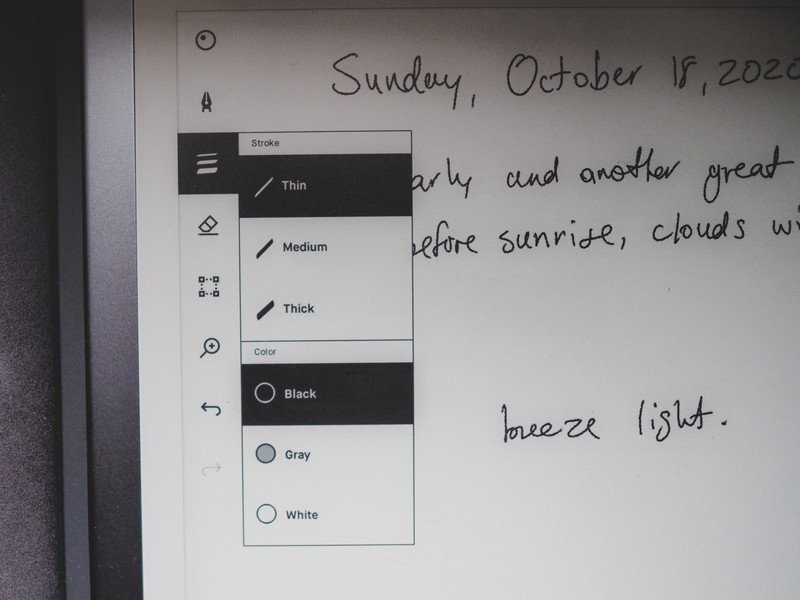
I also came across a few instances where loading a new document would take a few seconds to load before I was able to write on it, a result of the relatively slow 1.2Ghz dual-core chip and 1GB of RAM powering the Remarkable 2. None of these minor gripes ever got in the way of actually enjoying the tablet, but if you're expecting blazing iPad- or Galaxy Tab-like performance, this isn't the product for you.
Similarly, if you're someone who likes reading documents in the dark, the fact that the Remarkable 2 doesn't have a backlight is going to be an issue. Though including one would have inevitably added thickness and cost to the finished product.
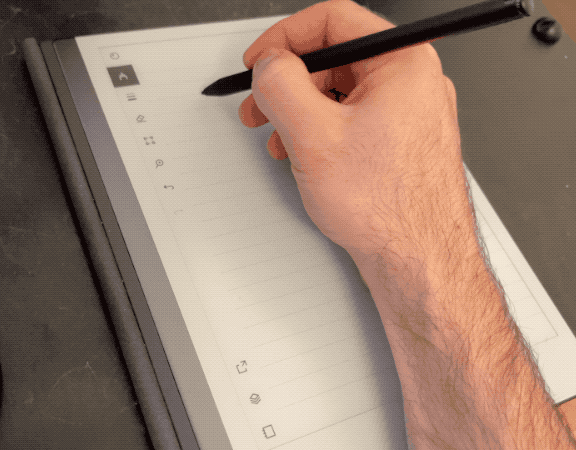
My biggest gripe with the Remarkable 2 really isn't about the tablet at all but its cloud backend. While the company provides access to your documents through the web, mobile, and desktop apps, they're extremely rudimentary, quite buggy, and offer only unidirectional functionality — you can only receive content from the tablet.
While you can import PDFs, and export documents from the apps to PDF, SVG or PNG, there's no native editing functionality, and the rendering of fonts, especially thin ones, is quite poor. I have heard that Remarkable is planning to do something about these limitations in a future update, but for now, think of the companion apps as backup and reference tools more than anything else.
Remarkable 2 The competition
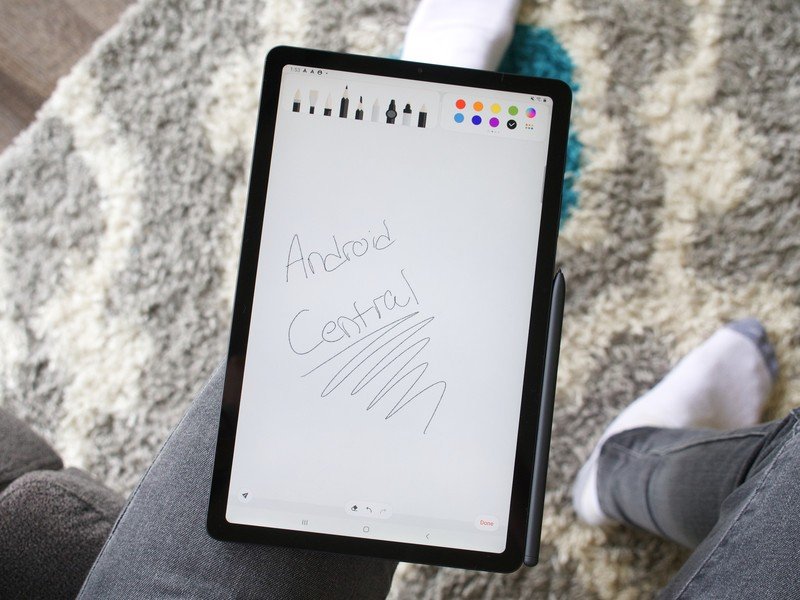
Remarkable has captured much of the market's attention with its focus on writing and drawing on e-paper, but there are some competitors out there. Onyx, a company I really haven't heard much about, just released a similarly-sized writing tablet called the Boox Note Air, but it's priced much more like a typical tablet at $479.99 and has the specs to prove it, including a more powerful octa-core processor, 3GB of RAM, 32GB of storage, and a modified build of Android 10 replete with a custom web browser and full Play Store support. It's far less focused than the Remarkable 2 but also more capable while sporting the same e-ink display and refresh rate.
While the standard $329 iPad now supports Apple Pencil, and many of the best Android tablets, like the Galaxy Tab S6 Lite, support native stylus input, none of them come close to offering the feeling of writing on paper as the Remarkable 2. I was very skeptical going into it, but just being able to press the power button and launch directly into a new document is a drastically different experience than loading up an app and touching plastic to glass.
There are other tablets, like the Wacom Intuos Pro, that provides a similar input surface, but requires an external display from a Mac or PC to actually save the documents. Wacom tablets are designed mainly for artists and animators, not writers, but could be used for writing in some cases.
Remarkable 2 Should you buy it?
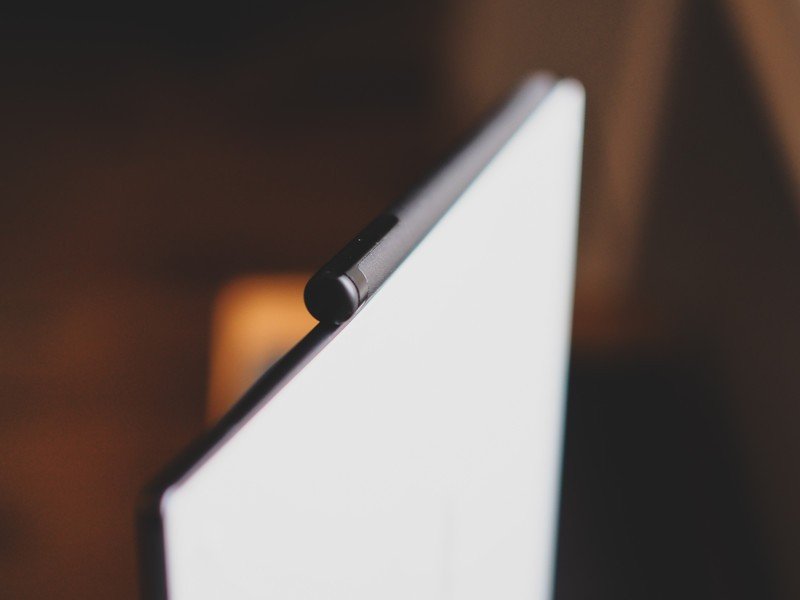
You should buy this if ...
- You prefer hand-written note-taking over digital equivalents
- You absolutely love writing by hand but don't want to use paper
- You prefer a large e-ink display for reading e-books and PDFs
- You need to annotate documents by hand
- You want to organize your life a bit better and can pay for the privilege
You should not buy this if ...
- You need a fully-fledged tablet
- You don't want to spend extra on accessories
- You don't want to wait for your order
4.5 out of 5
I didn't expect to love the Remarkable 2 tablet as much as I did, but its presence in my life was the impetus I needed to take charge of my daily task-running and commit to a new system.
I've found that I prefer to see my tasks in front of me and physically cross them off; I prefer to read and annotate documents by hand; I enjoy the physicality in writing notes during interviews and being able to show people attention without them hearing my keys banging away in the background. As focused as the Remarkable 2 forces me to be, it's helped completely change the way I relate to note-taking in a few short time, and I appreciate its existence immensely for that fact.
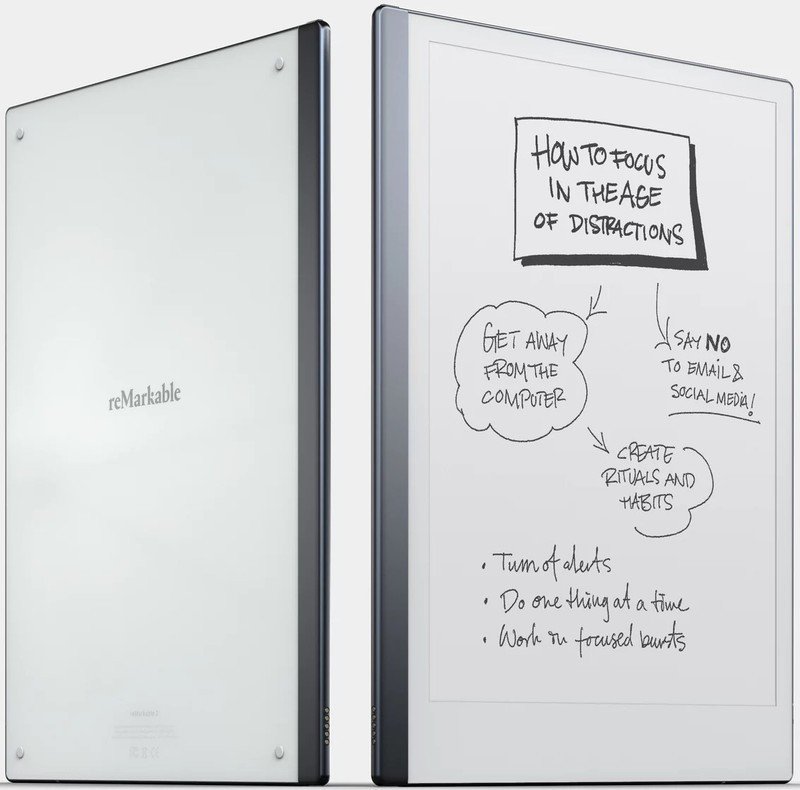
Remarkable 2
A writing tablet that somehow feels futuristic.
The Remarkable 2 is a niche, focused writing tablet that won't appeal to everyone, but once you use it, you understand that what it does, it does really well.
Daniel Bader was a former Android Central Editor-in-Chief and Executive Editor for iMore and Windows Central.
